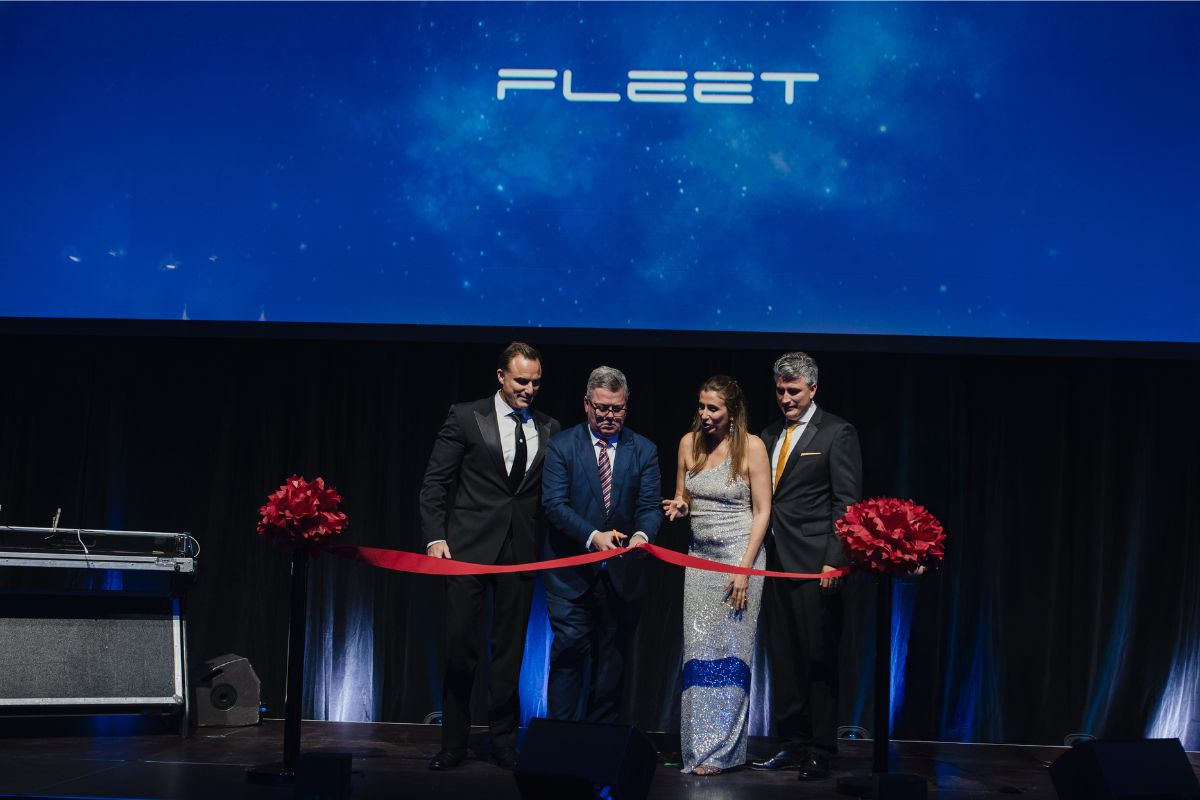Liftoff: Fleet Space opens new ‘hyperfactory’ at Adelaide Airport
A new space-tech ‘hyperfactory’ at Adelaide Airport has officially opened. It hosts a local space company’s growing ambitions to be a major manufacturer of microsatellites.

Fleet Space Technologies has officially opened its new global headquarters and space-tech hyperfactory at Adelaide Airport’s Catalyst Park.
The facility – spanning 5300sqm – would boost the country’s advanced manufacturing capacity by enabling the production of thousands of next-generation geophysical sensors and hundreds of satellites per year.
It brings Fleet Space’s business operations into a vertically integrated model, whereby it controls the supply chain, design, manufacturing, operations, engineering and R&D within a state-of-the-art facility.
It comes in time for the 10th anniversary of Fleet Space, a homegrown company that now operates a constellation of nano-satellites to provide insights for industries like mining, agriculture and defence. The news also follows the company closing a $150 million Series D funding round, giving the company a valuation of $800 million.
“Ten years ago, Fleet Space began the journey of building next-gen exploration technologies – powered by the latest advances in space, agile geoscience, and AI – to accelerate the energy transition and support future missions to the moon, Mars, and beyond,” said Fleet Space CEO and co-founder Flavia Tata Nardini, an InDaily 40 Under 40 alumni.
“Today we are proud to open our new global headquarters and space tech hyperfactory to scale our global platform – ExoSphere – to fuel the next leap in science, technology, and human exploration – future-proofing Australia’s leadership in the development of future industries.”

The factory would support the expansion of its AI-powered exploration platform – ExoSphere – which is being deployed by some of the world’s largest mining companies including Rio Tinto, Barrick, Gold Fields and Maaden. The system can image mineral systems in real-time across five continents.
The hyperfactory was also expected to help advance Fleet Space’s off-world missions over coming years, including deployment of the lunar variant of its ExoSphere technology – SPIDER.
“The scale, speed, and capacity of this vertically integrated facility will equip explorers on Earth and beyond with the agile geoscience solutions needed to move from insight to action, faster – a critical step in supporting the clean energy transition and near-term ambitions to build permanent research stations beyond our planet,” Fleet Space co-founder and chief exploration officer Matt Pearson said.
“Our 10-year anniversary is more than a celebration – it is a promise of what’s to come.
Stay informed, daily
“Fleet Space was founded a decade ago on the belief that Australia could shape the future of exploration, and today we are delivering the agile geoscience technologies that are accelerating discovery on Earth, the Moon, and Mars.”
The facility opened at the company’s inaugural Horizon Global Summit, a convention of global leaders in space and technology, including explorer Tim Jarvis and representatives from BHP, Maaden, Koloma, Odyssey Space, F1 Academy, Robinson Aerospace, Deadly Science, among many others.
South Australian Artificial Intelligence (AI), Digital Economy, Defence and Space Industries Michael Brown said Fleet Space was “an excellent example of how South Australia’s home-grown innovation strengthens our nation’s strategic industries”.
“Increased investment in digital infrastructure and capabilities in our state, continues to make South Australia an attractive and sound investment for world-class space and defence companies.”








